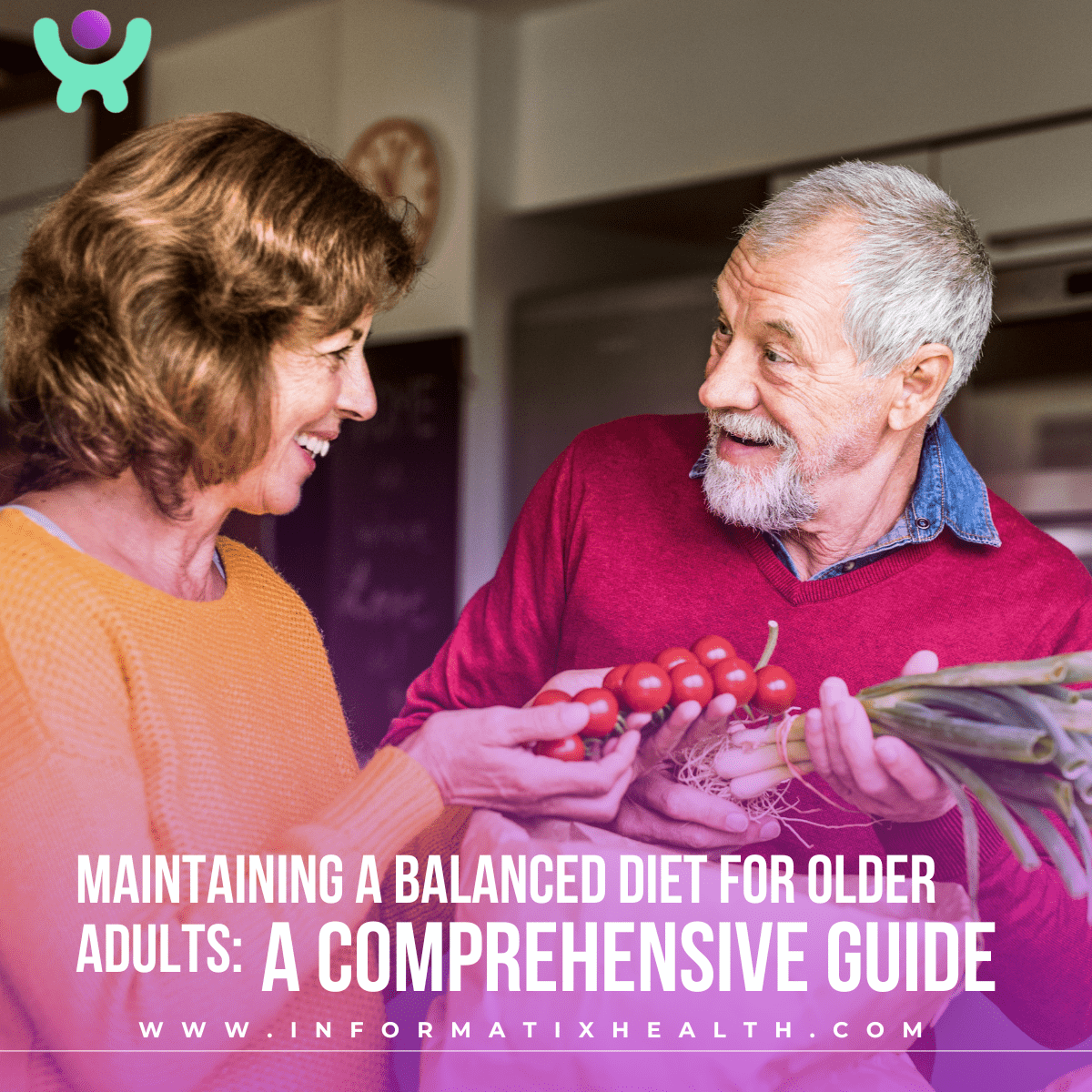As we age, maintaining a balanced diet becomes increasingly vital for supporting overall health, managing chronic conditions, and promoting quality of life. This blog provides actionable tips for older adults to achieve a nutritious and enjoyable eating plan.
Why a Balanced Diet Matters for Older Adults
A well-rounded diet can:
- Boost energy levels and immunity.
- Support bone health and prevent osteoporosis.
- Reduce the risk of chronic diseases like diabetes and heart disease.
- Enhance cognitive function and mood.
Key Components of a Balanced Diet
1. Nutrient-Dense Foods
Older adults often need fewer calories but higher nutrient intake. Focus on:
- Fruits and Vegetables: Strive for a rainbow of colors to ensure a variety of vitamins and antioxidants.
- Whole Grains: Options like quinoa, oatmeal, and whole-wheat bread provide fiber and energy.
- Lean Proteins: Incorporate fish, poultry, beans, and eggs to maintain muscle mass.
- Healthy Fats: Add sources like avocados, nuts, and olive oil for heart health.
2. Bone-Strengthening Nutrients
- Calcium: Found in dairy products, fortified plant milks, leafy greens, and almonds.
- Vitamin D: Boost levels through sunlight exposure, fatty fish, egg yolks, and fortified foods.
3. Digestive Health
- Prioritize fiber from beans, lentils, whole grains, and fruits like pears and berries.
- Drink plenty of water to prevent dehydration and aid digestion.
4. Brain and Heart Support
- Add Omega-3 fatty acids from salmon, walnuts, and flaxseeds to protect cognitive and cardiovascular health.
5. Portion Control
Metabolism slows with age, so focus on smaller portions of nutrient-rich foods to avoid excess calorie intake.
Common Challenges and Solutions
Reduced Appetite
- Opt for smaller, frequent meals packed with nutrients.
- Choose calorie-dense foods like nut butters, cheese, and avocados.
Dental Issues
- Incorporate softer options like smoothies, mashed vegetables, and soups.
Budget Constraints
- Buy seasonal produce and frozen fruits/vegetables.
- Plan meals to reduce waste and rely on cost-effective protein sources like beans and eggs.
Supplementation and Professional Advice
- Consult a healthcare provider about potential needs for supplements, such as Vitamin B12 or Omega-3s.
- A dietitian can provide tailored advice for managing specific health concerns.
A balanced diet for older adults is not just about eating right—it’s about enjoying a variety of foods that support long-term health and vitality. By incorporating these tips, older adults can nourish their bodies while savoring delicious meals.


